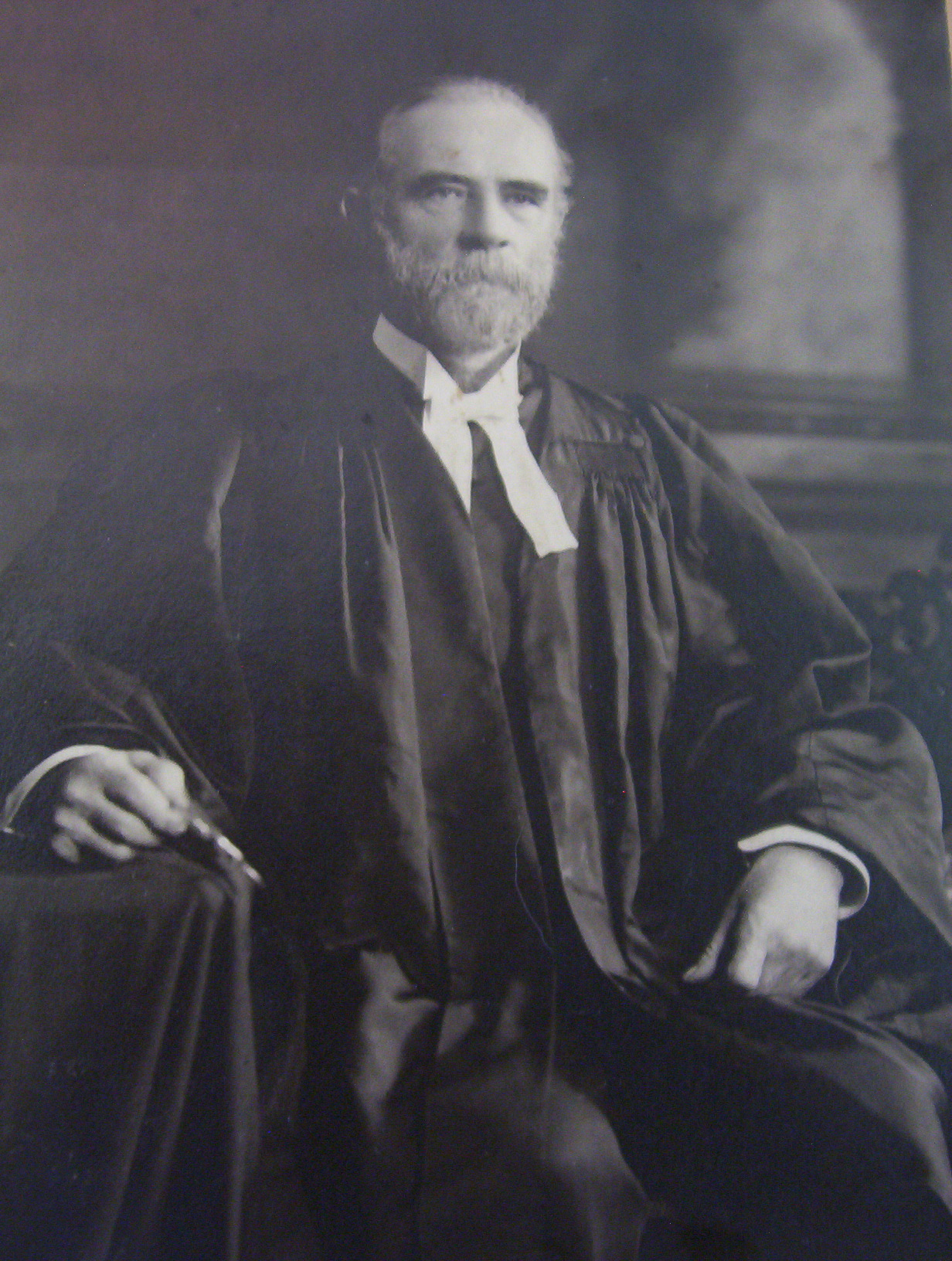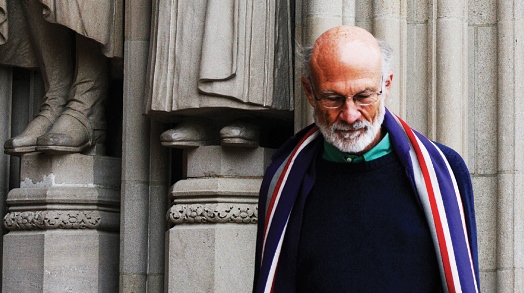 Divine Victory
Divine Victory
Hart begins the second chapter with a meditation on nature, which in the West, at least, has been disenchanted. To some extent the church is responsible for this state of affairs since nature no longer can be deified. But the Enlightenment also has played a role, desacrilising nature, making it simply a “thing,” or a fact. For modern theists or deists, creation is that of an absent God; for atheists it is not creation at all, but an entirely natural system of cause and effect. For both camps, the idea of impersonal causation is central. “To put the matter starkly, nature is a cycle of sacrifice, and religion has often been no more than an attempt to reconcile us to this reality.”(52) But Hart rejects this view, seeing instead creation as imbued in every particle of its being with the glory, love and beauty of God.
“God is love,” says 1 John 4:16, “and he that dwelleth in love dwelleth in God, and God in Him.” Christian metaphysical tradition, in both the Orthodox East and the Catholic West, asserts that God is not only good but goodness itself, not only true or beautiful but infinite truth and beauty: that all the transcendental perfections are one in him who is the source and end of all things, the infinite wellspring of all being. Thus everything that comes from God must be good and true and beautiful. As he is the sole source of being—as he is being itself in its transcendent plenitude, beyond all finite being—everything that is, insofar as it is, is entirely worthy of love. And it is this love and goodness of God that the Christian is bidden to find in the entirety of the created order. (54-55)
Yet there is also duality in creation, an alternate kingdom, vision and experience, and both sides of this duality are real. The created sphere has been gifted a genuine though contingent autonomy which humanity has used in opposition to God, and thereby has given itself and the physical order into the hand of another master. Hart is unapologetic in his appeal to the New Testament as the foundation of this somewhat mythological worldview (61-66). Yet before, alongside, within, and beyond this broken history into which we have fallen is a “contrary history” that pervades and will finally overwhelm this world of our fallenness. (68)
The Christian should see two realities at once, one world (as it were) within another: one the world as we all know it, in all its beauty and terror, grandeur and dreariness, delight and anguish; and the other world in its first and ultimate truth, not simply “nature” but “creation,” an endless sea of glory, radiant with the beauty of God in every part, innocent of all violence. To see in this way is to rejoice and mourn at once, to regard the world as a mirror of infinite beauty, but as glimpsed through the veil of death; it is to see creation in chains, but beautiful as in the beginning of days. (60-61)
God’s glory is a kind of parallel world hidden and yet present, accompanying this world but not born from its ructions and sufferings. Rather, God has come into this world of death for the purpose of conquest and victory. This is the gospel: “An ineradicable triumphalism, a conviction that the will of God cannot ultimately be defeated and that the victory over evil and death has already been won.” (66)
Evil itself has no ultimate value or spiritual meaning at all. It is a privatio boni, a privation of the good. Hart asserts it is a child of the will, a
Turning of the hearts and minds of rational creatures away from the light of God back toward the nothingness from which all things are called. … a kind of ontological wasting disease. Born of nothingness, seated in the rational will that unites material and spiritual creation, it breeds a contagion of nothingness throughout the created order. Death works its ruin in all things, all minds are darkened, all desires are invaded by selfishness, weakness, rapacity, and the libido dominandi—the lust to dominate—and thus tend away from the beauty of God indwelling his creatures and toward the deformity of nonbeing. (73)
Evil has not come from God nor is it used by God for the fulfilment of his purposes. “It has no ‘contribution’ to make.” (73) Divine providence, therefore, is not divine causation, the reduction of God to one almighty act of willing that fails to distinguish between what God wills and what God permits. Hart makes much of this distinction, arguing that God permits that which God does not will, that the integrity of the world and its limited sphere of freedom might be maintained. Providence, therefore, is not a universal teleology. Rather, providence maintains the integrity of the world and also saves the world by judging its evil. To reduce providence to an abstract omnicausality is to render God indistinguishable from the world, sin and the devil (90-91).
We are to be guided by the full character of what is revealed of God in Christ. For, after all, if it is from Christ that we are to learn how God relates himself to sin, suffering, evil, and death, it would seem that he provides us little evidence of anything other than a regal, relentless, and miraculous enmity: sin he forgives, suffering he heals, evil he casts out, and death he conquers. And absolutely nowhere does Christ act as if any of these things are part of the eternal work or purposes of God. … God may permit evil to have a history of its own so as not to despoil creatures of their destiny of free union with him in love, but he is not the sole and irresistible agency shaping that history according to eternal arbitrary decrees. (86-87)
Conclusion
Ultimately, then, the origin of suffering and evil is a mystery grounded in created freedom, and in “another time” inaccessible to us (102). It is a surd within the created order and utterly alien to the being, purposes and will of God. Thus Hart’s theological vision is one of the infinite beauty and infinite goodness of God, a beauty and goodness so all encompassing, it is utterly impossible that God could do evil or even make use of evil in the pursuit of his will. It is on account of this vision of God that Hart rejects all attempts at theodicy which endeavour to make sense of evil or find a place or purpose for it in the overarching purposes of God. Evil remains evil, so we are permitted to hate it with a perfect hatred.
There is, of course, some comfort to be derived from the thought that everything that occurs at the level of secondary causality—in nature or history—is governed not only by a transcendent providence but by a universal teleology that makes every instance of pain and loss an indispensable moment in a grand scheme whose ultimate synthesis will justify all things. But one should consider the price at which that comfort is purchased: it requires us to believe in and love a God whose good ends will be realized not only in spite of—but entirely by way of—every cruelty, every fortuitous misery, every catastrophe, every betrayal, every sin the world has ever known; it requires us to believe in the eternal spiritual necessity of a child dying an agonizing death from diphtheria, of a young mother ravaged by cancer, of tens of thousands of Asians swallowed in an instant by the sea, of millions murdered in death camps and gulags and forced famines (and so on). It is a strange thing indeed to seek peace in a universe rendered morally intelligible at the cost of a God rendered morally loathsome. (98-99)
No! God is utterly good and goodness itself. His work in Christ is a work of judgement and victory, and his eschatological revelation will be the same. God will not bring every event in history into “one great synthesis but will judge much of history false and damnable … and will strike off the fetters in which creation languishes.” (104) He will wipe every tear from our eyes and make all things new.
 I have heard it claimed that somewhere there is a plaque celebrating a minister of a church who served for decades “without ever once showing any trace of enthusiasm in his ministry.”
I have heard it claimed that somewhere there is a plaque celebrating a minister of a church who served for decades “without ever once showing any trace of enthusiasm in his ministry.”






